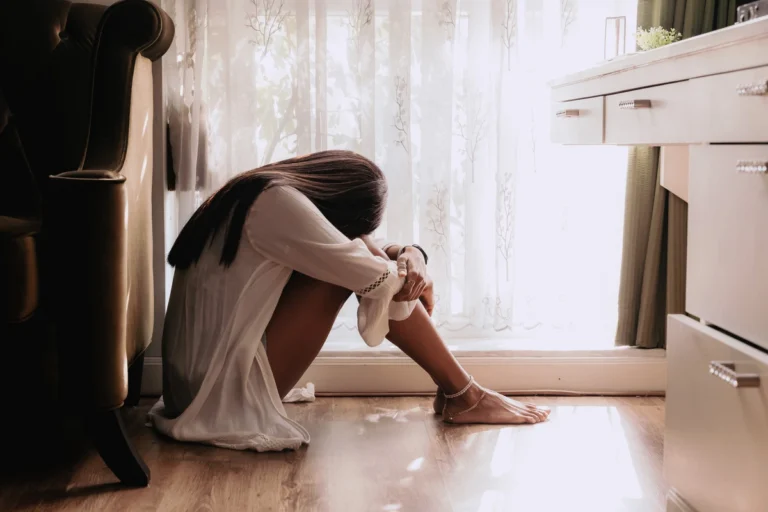May 2024 is Mental Health Awareness Month, a vital period dedicated to illuminating the mental health issues that affect millions worldwide. This month is especially significant when considering the unique psychological challenges faced by women, who often experience mental health conditions differently due to various biological, social, and cultural factors. At Anchored Tides Recovery, we recognize the importance of addressing these distinct needs and are committed to empowering women through specialized mental health services. Our goal is to foster resilience and promote well-being among women, providing them with the support and resources necessary to thrive.
In this blog post, we will explore the importance of gender-specific mental health treatment and share how our structured programs are making a positive impact.

Understanding Mental Health in Women
Mental health issues can affect anyone, but certain conditions tend to be more prevalent or present differently in women due to biological, social, and psychological factors. Here, we delve into some of the most common mental health challenges faced by women: depression, anxiety, and eating disorders.
Depression in Women
Anxiety in Women
Eating Disorders in Women
Eating disorders, such as anorexia nervosa, bulimia nervosa, and binge eating disorder, disproportionately affect women. These disorders are characterized by an unhealthy focus on eating, body weight, and shape. Eating disorders can be influenced by a variety of factors, including cultural ideals around body image, personal experiences with body shaming, and psychological issues such as anxiety and depression.
Understanding these issues is crucial in developing effective treatment strategies that address the specific needs of women. At Anchored Tides Recovery, we structure our levels of care and therapeutic approaches to help women navigate these challenges in a supportive and understanding environment. By focusing on the unique aspects of women’s mental health, we strive to create a path to recovery that respects the complexities of each individual’s experience.
What are the common 8 types of mental disorders?
- Clinical depression
- Anxiety
- Bipolar disorder
- Dementia
- Attention-deficit/hyperactivity disorder (ADHD)
- Schizophrenia
- Post Traumatic Stress Disorder (PTSD)
- Obsessive Compulsive Disorder (OCD)
The Role of Gender-Specific Treatment
Gender-specific treatment plays a critical role in effectively addressing mental health issues, particularly for women who face unique challenges and circumstances. At Anchored Tides Recovery, we prioritize a methodical approach specifically to the needs of women. This section explores the benefits of gender-specific treatment and how it contributes to more effective recovery outcomes.
Tailored Therapeutic Approaches
Safe and Supportive Environment
Empowerment Through Treatment
Addressing Hormonal Influences
At Anchored Tides Recovery, our commitment to gender-specific treatment ensures that each woman receives personalized care that addresses her needs. By focusing on the distinct challenges women face, we can improve the effectiveness of treatment and empower our clients to lead healthier, more fulfilling lives.

Comprehensive Services Offered by Anchored Tides Recovery

Partial Hospitalization Program (PHP)
Our PHP serves as a bridge between inpatient care and outpatient treatment. It is ideal for women who require structured therapy but also benefit from the independence of living at home or in a sober living environment. The program typically includes several hours of therapy per day, five to seven days a week, providing a high level of care without full-time hospitalization. Therapies offered include individual counseling, group sessions, and workshops that focus on skill-building, relapse prevention, and managing mental health symptoms.

Intensive Outpatient Program (IOP)
The IOP at Anchored Tides Recovery is designed for women who are transitioning from PHP or those who need more support than traditional outpatient services. This program usually involves attending therapy for a few hours per day, several days a week. IOP allows clients to continue their recovery while managing daily responsibilities like work or family. The focus is on continuing therapy, education, and peer support, fostering long-term recovery, and helping women integrate coping strategies into everyday life.

Outpatient Program (OP)
Our Outpatient Program offers flexibility for women who need ongoing support and can manage a greater level of independence. OP typically includes therapy sessions once or twice a week, focusing on maintaining recovery and reinforcing skills learned in more intensive programs. This program is suited for those who have made significant progress in their recovery journey and are ready to test their resilience while still having access to professional support.

Holistic and Specialized Services
In addition to these primary programs, Anchored Tides Recovery provides a range of holistic and specialized services that support overall well-being and address specific needs. These services may include yoga, meditation, art therapy, and trauma-informed care, all aimed at enhancing mental, physical, and emotional health.
A FEW WORDS FROM OUR CLIENTS
STORIES OF RECOVERY
I would highly recommend anchored tides! I was a client at anchored tides for almost a year and it was such an amazing place to be and played a major part in my recovery. First the owners Becca and Amy are such amazing women who truly care about helping women and run an honest recovery center with great therapists, case managers & staff. This place helped me integrate back into life and always encouraged me throughout the time I was there. I now have almost 18 months sober and am truly blessed by the life I have today and a HUGE thank you goes out to achored tides and all that they did to help to get me where I am at today. I truly couldn’t not say enough good things about this place or the amount of love that I have for everyone here!
I would highly recommend anchored tides! I was a client at anchored tides for almost a year and it was such an amazing place to be and played a major part in my recovery. First the owners Becca and Amy are such amazing women who truly care about helping women and run an honest recovery center with great therapists, case managers & staff. This place helped me integrate back into life and always encouraged me throughout the time I was there. I now have almost 18 months sober and am truly blessed by the life I have today and a HUGE thank you goes out to achored tides and all that they did to help to get me where I am at today. I truly couldn’t not say enough good things about this place or the amount of love that I have for everyone here!
What an amazing place Anchored Tides is. As Amy explained when we first visited, girls and women are an afterthought in many treatment programs, which often are founded and structured for boys and men. Anchored Tides’ holistic approach to ALL of the co-existing issues that girls and women face is groundbreaking, and so appreciated. They are wonderful people who do inspiring work and make the world a better place every day. I highly recommend their sober living and IOP. The founders have crucial and relevant lived experiences and care deeply, and they are amazing role models for all the women help.
What are 8 ways to improve mental health?
Tips for Supporting Women’s Mental Health
1. Listen Actively and Without Judgment
2. Encourage Professional Help
3. Educate Yourself About Mental Health
4. Offer Practical Assistance
Sometimes, daily tasks can become overwhelming for those dealing with mental health issues. Offering practical help, such as running errands, preparing meals, or helping with childcare, can provide relief and show that you care.
5. Promote Self-Care
6. Be Patient
7. Maintain Open Communication
Keep the lines of communication open. Check in regularly and encourage open dialogue about how they are feeling and what they are experiencing. Make sure they know that you are there for them in whatever capacity they need.
8. Respect Privacy and Boundaries
While you may want to help, it’s important to respect privacy and boundaries. Always ask permission before sharing details about someone’s mental health with others, and respect their decisions regarding their treatment and recovery process.
By implementing these tips, you can provide meaningful support to women dealing with mental health challenges, helping them feel valued, understood, and less alone in their journey.

Resources
- “Women and Depression.” Women and Depression | Anxiety and Depression Association of America, ADAA, adaa.org/find-help-for/women/depressioon.
































